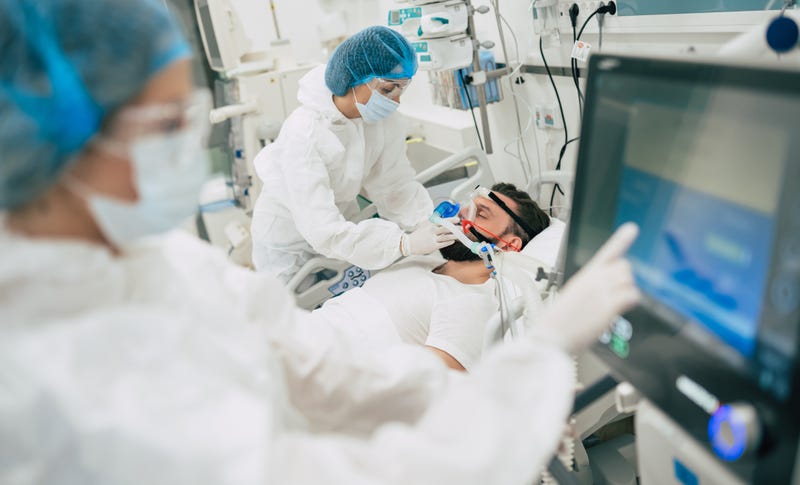
SAN FRANCISCO (KCBS RADIO) – More than two years into the pandemic, it's still unclear just how well COVID-19 immunity – whether through the vaccine or infection, or both – will continue to hold up as the virus continues to mutate.
"The immunity that you get from the natural infection is a lot broader and more complex than the immunity you get from the vaccine," said Dr. Donna Farber, an immunologist and the Director of the Human Tissue Immunity and Disease Initiative at the Columbia University College of Physicians and Surgeons on KCBS Radio's "Ask an Expert" on Wednesday.
"The reason is because your immune response is actually in multiple tissues in your body," she told KCBS Radio's Melissa Culross and Jason Brooks. "You actually have an immune response in your lungs."
This means that if you develop a respiratory illness from a virus, you will have an immune response directly in the lungs, which can help protect from subsequent infections.
"When you get an infection, you will get immunity in different places," she said. "You'll get it in multiple sites."
And this goes along with the antibodies that then develop in the blood, said Farber.
But another aspect of immunity from infection that differentiates it from vaccine immunity is that infection creates immunity to all aspects of the virus.
The immune response will subsequently recognize all the various proteins as foreign, and will develop virus-specific immunity, she said as not just antibodies, but also T cells that can be in multiple parts of the body.
"The immunity you get from vaccination is much more focused," said Farber. The vaccine most people have received, the mRNA vaccine, encodes the spike protein on the virus, which it uses to enter cells.
If the spike protein can be blocked, then infection can also be blocked. So most of the immune response generated by the vaccine are antibodies. Immunity to other parts of the virus are not generated.
And immunity is not necessarily going to be generated at the site of infection, because the vaccine is injected in the arm.
Researchers are still working on how long the immunity from each lasts, and if one lasts longer than the other, but there is some indication already that those who are both vaccinated and have been infected will have more robust immunity.
"So-called hybrid immunity," said Farber.
LISTEN on the Audacy App
Sign Up and Follow Audacy
Facebook | Twitter | Instagram
